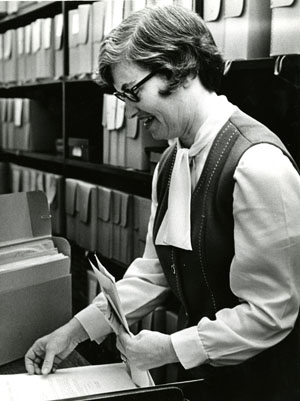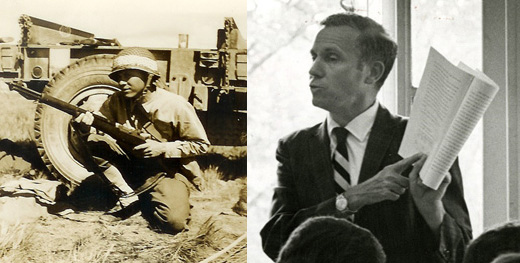WKU’s Department of Library Special Collections lost a valued former colleague with the May 6, 2016 death of Elaine “Penny” Harrison.
According to her family, it was while watching a movie that the young Elaine Maher and two childhood friends decided to assume the names of the film’s three heroines. Thus was born Elaine’s lifelong nickname, “Penny.”
A Connecticut native, Penny met WKU alumnus Lowell H. Harrison while working at New York University. After they married in 1948, she followed him to London on his Fulbright Scholarship, then to Texas, where Dr. Harrison taught at West Texas State University and Penny earned a master’s degree in history. In 1967, Dr. Harrison returned to Bowling Green to teach at his alma mater and Penny joined the Kentucky Library (now part of the Department of Library Special Collections), where she served as manuscripts librarian until her retirement in 1986.
While at WKU, Penny earned a master’s degree in library science, completed special studies in archives at the University of Wisconsin, and developed a manual for processing manuscript collections at the Kentucky Library. The first treasurer and archivist for the Kentucky Council on Archives, she was honored with a KCA fellowship in 1987 to recognize her outstanding contributions to the profession. Special Collections Librarian Sue Lynn McDaniel says that Penny also enjoyed mentoring students in her field. In fact, McDaniel recalls, “she gave me the career/education advice that allowed me to become her successor as Manuscripts Librarian at WKU.”
Penny and Lowell Harrison (who died in 2011) also gave generously to WKU and the Kentucky Library. Acknowledging their financial support for collection development, then-Special Collections Department Head Riley Handy told them simply: “We have no better friends than you.”



